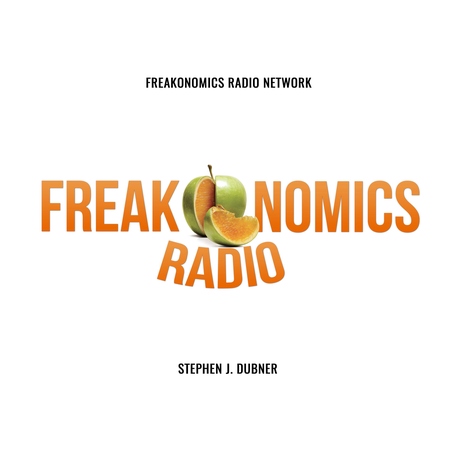
Freakonomics Radio
Freakonomics Radio + Stitcher

Freakonomics Radio + Stitcher

People who are good at their jobs routinely get promoted into bigger jobs they’re bad at. We explain why firms keep producing incompetent managers — and why that’s unlikely to change. SOURCES: Ni

Fareed Zakaria says yes. But it’s not just political revolution — it’s economic, technological, even emotional. He doesn’t offer easy solutions but he does offer some hope. SOURCES: Fareed Zaka

The political debates over immigration can generate a lot of fuzzy facts. We wanted to test Americans’ knowledge — so, to wrap up our special series on immigration , we called some Freakonomics Rad

As the U.S. tries to fix its messy immigration system, our neighbor to the north is scooping up more talented newcomers every year. Are the Canadians stealing America’s bacon? (Part three of a three-

The U.S. immigration system is a massively complicated machine, with a lot of worn-out parts. How to fix it? Step one: Get hold of some actual facts and evidence. (We did this step for you.) (Part two

She arrived in the U.S. as an 11-year-old refugee, then rose to become Secretary of State. Her views on immigration, nationalism, and borders, from this 2015 interview, are almost strangely appropriate

How did a nation of immigrants come to hate immigration? We start at the beginning, sort through the evidence, and explain why your grandfather was lying about Ellis Island. (Part one of a three-part s

Economists have discovered an odd phenomenon: many people who use social media (even you, maybe?) wish it didn’t exist. But that doesn’t mean they can escape. SOURCES: Leonardo Bursztyn , professor

In ancient Rome, it was bread and circuses. Today, it’s a World Cup, an Olympics, and a new Saudi-backed golf league that’s challenging the PGA Tour. Can a sporting event really repair a country’

What surprises lurk in our sewage? How did racist city planners end up saving Black lives? Why does Arizona grow hay for cows in Saudi Arabia? Three strange stories about the most fundamental substance

It used to feel like magic. Now it can feel like a set of cheap tricks. Is the problem with Google — or with us? And is Google Search finally facing a real rival, in the form of A.I.-powered “answe

A wide-open conversation with three women who guided Richard Feynman through some big adventures at the Esalen Institute. (Part of our Feynman series .) SOURCES: Barbara Berg, friend of Richard Feynman

In his final years, Richard Feynman's curiosity took him to some surprising places. We hear from his companions on the trips he took — and one he wasn’t able to. (Part three of a three-part series

What happens when an existentially depressed and recently widowed young physicist from Queens gets a fresh start in California? We follow Richard Feynman out west, to explore his long and extremely fru

They’re heading to the Super Bowl for the second time in five years. But back in 2018, they were coming off a long losing streak — and that’s the year we sat down with 49ers players, coaches, and

From the Manhattan Project to the Challenger investigation, the physicist Richard Feynman loved to shoot down what he called “lousy ideas.” Today, the world is awash in lousy ideas — so maybe it�

Michael Roth of Wesleyan University doesn’t hang out with other university presidents. He also thinks some of them have failed a basic test of good sense and decency. It’s time for a conversation a

We all like to throw around terms that describe human behavior — “bystander apathy” and “steep learning curve” and “hard-wired.” Most of the time, they don’t actually mean what we think

Probably not — the incentives are too strong. Scholarly publishing is a $28 billion global industry, with misconduct at every level. But a few reformers are gaining ground. (Part 2 of 2) SOURCES: Max

Some of the biggest names in behavioral science stand accused of faking their results. Last year, an astonishing 10,000 research papers were retracted. We talk to whistleblowers, reformers, and a co-au
No reviews yet, be the first!